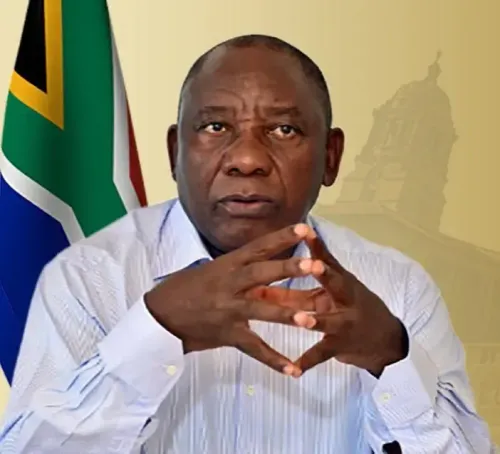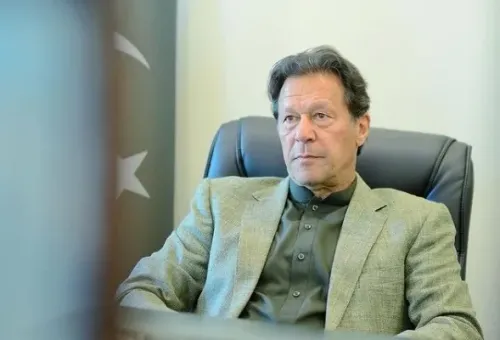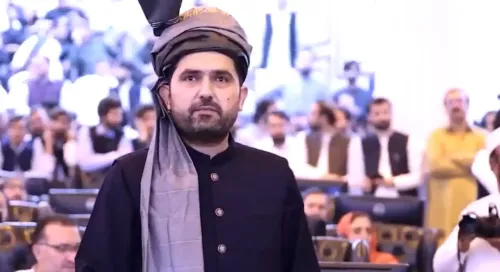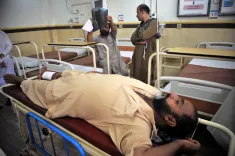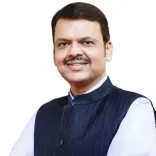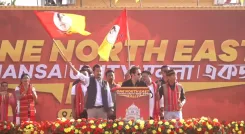What Happened to Students Protesting Attacks on Temples and Sufi Shrines in Bangladesh?
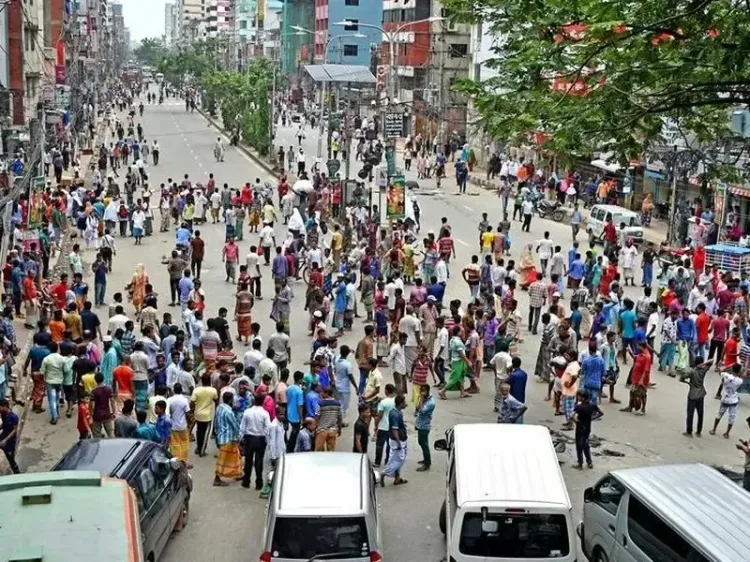
Synopsis
Key Takeaways
- Protest against violence: Students protested against attacks on religious minorities.
- Escalation of violence: The protest turned violent with injuries reported.
- Counter-protest involvement: Allegations of involvement from extremist groups.
- Concern for free speech: Rising challenges for democratic expression in Bangladesh.
- Global outrage: Increased international attention on human rights in Bangladesh.
Dhaka, Nov 27 (NationPress) A number of individuals from the left-leaning Democratic Students' Alliance in Bangladesh sustained injuries while conducting a human chain protest in Khulna district against the recent assaults on shrines and Sufi sites, as well as calling for the liberation of Baul singer Abul Sarkar.
This event took place on Wednesday evening at the Shibbari intersection in Khulna city, where another group identified as 'Students-People' initiated a counter-protest, accusing the protestors of an "insult to religion".
According to eyewitness accounts reported by Bangladesh's Bengali daily Prothom Alo, members of the Democratic Students' Alliance faced an onslaught of blows, punches, and sticks as they displayed their banners, which were later seized and set ablaze.
Kabir Hossain, the officer-in-charge (OC) of Sonadanga Model Police Station in Khulna Metropolitan Police, confirmed that the human chain organized by the leftist students was attacked by "students and the general public".
The Democratic Students' Alliance stated that their protest was a continuation of nationwide efforts to condemn the attacks on Baul artists, the vandalism of shrines and temples, and violence against individuals from various religions.
Sajeeb Khan, the general secretary of the district committee of the student union, mentioned, "We gathered at Shibbari around 3 pm. Although police were present, a planned assault occurred around 5 pm."
He alleged that the opposing group, which identified itself as "students and the people", comprised members of United People's Bangladesh (UPB) and Islami Chhatra Shibir, the student faction of the radical Islamist party Jamaat-e-Islami.
In response to the attack on the Democratic Students' Alliance in Khulna and the recent aggression against Baul followers nationwide, left-leaning student organizations at Dhaka University held a torch procession on the same night.
The demonstrators raised slogans such as "No place for extremism in Lalon Sai's Bengal," "Abul Sarkar is my brother, we demand his release now," "Who attacked in Thakurgaon? Communal terrorists," "Why was Abul Sarkar arrested? We want answers," and "Wah Yunus is wonderful, guardian of terrorists."
Condemning the incident in Khulna, Meghmallar Basu, the Chhatra Union President of Dhaka University unit, claimed that members of Chhatra Shibir, UPB, and the National Citizen Party were involved in the attack.
According to a leading publication, The Business Standard, the student leader stated, "We have reached a point where even democratic forces are unable to express themselves freely."
Bangladesh has seen a rise in violence against minorities, cultural institutions, and numerous religious sites under the interim government led by Muhammad Yunus, which has triggered outrage among the populace and various human rights organizations globally.

